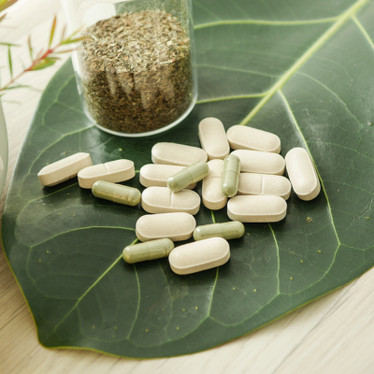
As we wrap and layer up to protect ourselves from the cold days of winter, it's also time to protect our immunity. But what's the most effective way to do this?
Dietary supplementation vs traditional plant therapy
Use of dietary supplements has increased during the past decade. Epidemiologic studies suggest that patients turn to dietary supplements because of a reluctance to take prescription medications or a lack of satisfaction with the results. They often perceive dietary supplements to be a safer or a more natural alternative.
However, an often overlooked alternative is the use of traditional plant therapy. For hundreds of years, traditional plant therapy was used as the first call for treatment of ills and chills and for warding off common winter threats. However, this traditional treatment was lost shortly after the second world war as advancements were made in the formulation of synthetic supplementation with general practitioners and pharmacists tending to recommend these over the historic natural alternative.
Ministry of Health research shows that around half of New Zealanders take dietary and health supplements. The survey also found that GPs and pharmacists often take dietary and health supplements themselves and most will routinely recommend one or more to their patients. Of those surveyed, around one in five GPs take a multivitamin or vitamin D supplement, with one in four taking fish oil. Multivitamins, fish oil, calcium, glucosamine, vitamin C and magnesium were taken by a significant proportion of pharmacists. Probiotics are also highly recommended by pharmacists (19 out of 21) and GPs (23 out of 50), although few take probiotics themselves, instead recommending patients taking them short-term with antibiotics so as to prevent gastrointestinal side effects.
From this study we also learnt that GPs and pharmacists generally receive very little education about natural products when studying for their qualifications; therefore basing their dietary supplement recommendations on personal use of products that are supported by strong research findings.
The art of incorporating herbs into one’s daily supplement plan seems once again lost. These historic healers have been overlooked and replaced by their synthetic counterparts.
Traditional plant therapy is based on hundreds of years of observational evidence. These formulations are highly sophisticated, and thanks to the naturally occurring phytocompounds not found in their synthetic counter parts, they work specifically on different pathways and organs in the body.
Supplementing your diet
Dietary supplements work in a much different manner. Supplements are created to supplement your diet and to add nutrients that you could be missing. Unfortunately, our food today contains less nutrients than it did 50 years ago and we often are unable to consume the recommended daily dosage through food alone.
For example, vitamin C is a nutrient that your body needs more of when it is run down or sick. It's like a building block that your body needs – similar to food. Vitamin C purchased from the supermarket, chemist or health shop, is generally ascorbic acid – a single compound which we call “vitamin C”. In nature, vitamin C is not a single compound but is always connected with a huge variety of other nutrients, such as bioflavonoids and iron (vitamin C helps with the absorption of plant-based iron). When these compounds are singled out they are often harder for our bodies to absorb.
Probiotics, another helpful immune booster, will help to support the body’s microbiome (the beneficial bacteria that live in our digestive systems, skin, and mucous membranes). One of the things we have learned about the microbiome is that it is vital for a healthy immune system. These again work differently to traditional plant therapy and serve a different role in building immune strength.
Traditional plants and herbs
Let’s look at a single herb to further understand the difference. The plant Nettle ( Urtica dioica) is naturally high in vitamin C, bioflavonoids and iron (as well as many other nutrients!). These are easily absorbed when taken as a tincture or tea. Nettle also contains phytocompounds that support the kidneys, fluid balance, and normal blood sugar levels. This herb contains unique phytochemicals which supports both the immune and urinary tract, as well as building nutritional deficiencies while working on improving the fundamental functions of the body.
The best traditional plant therapies use whole plant extracts and combine synergistically acting plants together to make formulations that have multiple strengthening effects on the body. Unlike tablets, oral liquids and teas make the delivery of these nutrients in a highly bioavailable manner, which means that your body gets more of the available nutrients and faster.
Now you can start to see the difference between traditional plant therapy and dietary supplementation. Both have a place when building immune strength, but they work very differently within our bodies and serve different purposes. The question is in fact not one or the other, but how can both be taken to promote a healthy and strong immune system to support winter wellness.
The Artemis range includes herbal medicines in a number of traditional forms, from targeted specialty tea blends to skin oils and creams and liquid herbs. Shop their range online now.
TAPS: PP3679

